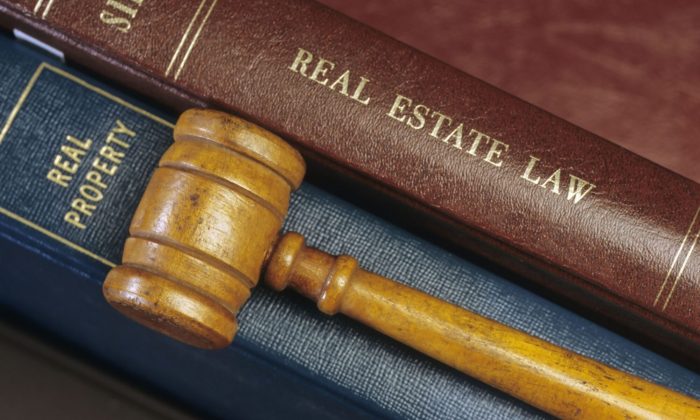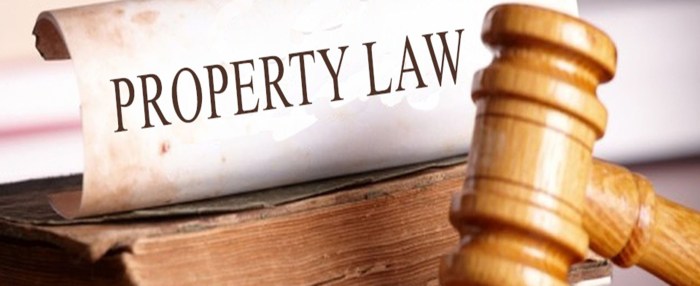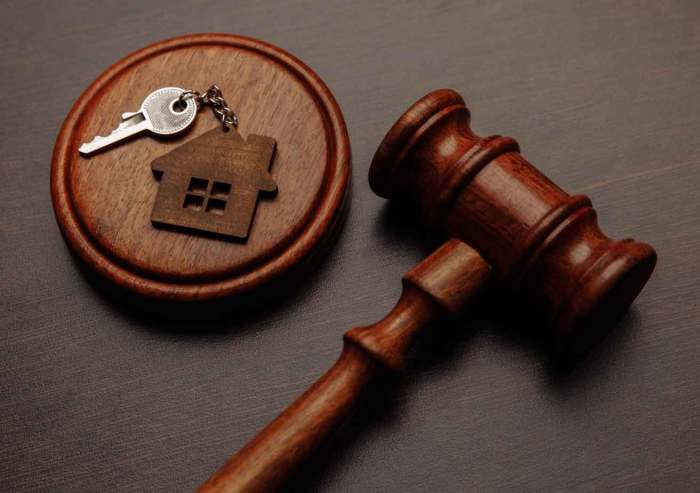Article 12A of the Real Property Law serves as a crucial legal framework governing foreclosure proceedings, safeguarding the rights of both mortgagors and mortgagees. This article delves into the intricacies of Article 12A, providing a comprehensive overview of its applicability, procedures, and implications.
Article 12A establishes the parameters for foreclosing on properties, outlining the steps involved, notice requirements, and timelines. It also defines the rights of mortgagors during the foreclosure process, including the redemption period and the ability to challenge the foreclosure.
Applicability of Article 12-A

Article 12-A of the Real Property Law establishes a framework for the regulation of horizontal property regimes in New York State.
It applies to all property interests in real estate that are subject to a declaration or plan creating a horizontal property regime, regardless of whether the property is residential, commercial, or mixed-use.
Types of Property Interests Covered
Article 12-A covers a wide range of property interests, including:
- Apartments
- Townhouses
- Condominiums
- Cooperative apartments
- Mixed-use developments
These property interests may be owned in fee simple, leasehold, or other forms of ownership.
Procedure for Foreclosure
Article 12-A of the Real Property Law establishes a specific procedure for foreclosing on a property in New York. This procedure involves several key steps and requires strict adherence to notice requirements.
The foreclosure process under Article 12-A typically begins when a lender or other secured party believes that a borrower has defaulted on their mortgage or other secured obligation. The lender must then initiate the foreclosure process by filing a notice of default and intent to foreclose with the county clerk’s office in the county where the property is located.
Timeline for the Foreclosure Process
The foreclosure process under Article 12-A typically follows a specific timeline, although the exact duration can vary depending on the circumstances of each case:
- Notice of Default and Intent to Foreclose:The lender files a notice of default and intent to foreclose with the county clerk’s office.
- Service of Notice:The lender serves the notice of default and intent to foreclose on the borrower and other interested parties.
- Opportunity to Cure Default:The borrower has a period of time, typically 90 days, to cure the default and reinstate the loan.
- Commencement of Foreclosure Action:If the borrower fails to cure the default, the lender may commence a foreclosure action in court.
- Foreclosure Sale:If the court grants a foreclosure judgment, the property is sold at a public auction.
- Redemption Period:After the foreclosure sale, the borrower and certain other parties have a period of time, typically one year, to redeem the property by paying the full amount of the foreclosure judgment.
Notice Requirements for Foreclosure Under Article 12-A
Article 12-A imposes strict notice requirements for foreclosure proceedings. These requirements are designed to ensure that the borrower and other interested parties are properly notified of the foreclosure action and have an opportunity to protect their interests.
- Notice of Default and Intent to Foreclose:The notice of default and intent to foreclose must contain specific information, including the amount of the default, the date the default occurred, and the steps the borrower must take to cure the default.
- Service of Notice:The notice of default and intent to foreclose must be served on the borrower and other interested parties in a manner prescribed by law. This may include personal service, substituted service, or publication.
- Notice of Foreclosure Sale:The notice of foreclosure sale must be published in a newspaper and posted on the property at least 20 days before the sale.
Rights of the Mortgagor
During the foreclosure process, the mortgagor retains specific rights to protect their interests. These rights include the redemption period, the right to challenge the foreclosure, and other protections established by law.
Redemption Period
The redemption period is a crucial right granted to mortgagors. It allows them to regain ownership of their property after a foreclosure sale by repaying the outstanding mortgage debt, foreclosure costs, and any additional fees.
The length of the redemption period varies by state, typically ranging from six months to two years. During this time, the mortgagor can redeem the property by paying the full amount due to the foreclosing party.
Challenging the Foreclosure
Mortgagors have the right to challenge the validity of a foreclosure proceeding. This can be done by filing a lawsuit against the foreclosing party, alleging that the foreclosure was improper or unlawful.
Common grounds for challenging a foreclosure include procedural errors, lack of proper notice, or violations of the mortgage agreement. If the mortgagor successfully challenges the foreclosure, the sale may be set aside, and the mortgagor may retain ownership of the property.
Rights of the Mortgagee

During the foreclosure process, the mortgagee, or lender, has certain rights to protect their interests in the property. These rights include the right to possession of the property, the right to sell the property, and the right to recover any deficiency balance.
Right to Possession of the Property, Article 12a of the real property law
In most states, the mortgagee has the right to take possession of the property after the foreclosure sale. This right is not absolute, however, and the mortgagor may be able to retain possession of the property in certain circumstances, such as if they file for bankruptcy or if they are able to reach an agreement with the mortgagee.
Right to Sell the Property
The mortgagee has the right to sell the property at a foreclosure sale. The sale must be conducted in accordance with the law, and the mortgagee must give the mortgagor notice of the sale. The proceeds of the sale are used to pay off the mortgage debt, and any remaining proceeds are returned to the mortgagor.
Defenses to Foreclosure: Article 12a Of The Real Property Law

Under Article 12-A of the Real Property Law, various defenses can be raised to contest a foreclosure action. These defenses may challenge the validity of the mortgage, the procedures followed in initiating foreclosure, or the amount of debt claimed by the mortgagee.
To assert a defense, the mortgagor must file an answer to the foreclosure complaint within the time specified by law. The answer should clearly state the defenses being raised and provide supporting evidence or arguments.
Common Defenses to Foreclosure
- Lack of Standing:The mortgagee does not have the legal right to foreclose on the mortgage.
- Improper Notice:The mortgagor did not receive proper notice of the foreclosure proceedings.
- Defective Mortgage:The mortgage is invalid due to errors or omissions in its execution or recording.
- Usury:The mortgage loan has an excessively high interest rate that violates usury laws.
- Unconscionability:The mortgage terms are so unfair and one-sided that they are unenforceable.
- Payment:The mortgagor has already paid off the mortgage debt.
- Statute of Limitations:The foreclosure action was not filed within the time period allowed by law.
- Bankruptcy:The mortgagor has filed for bankruptcy, which may stay or discharge the foreclosure proceedings.
Examples of Successful Defenses to Foreclosure Under Article 12-A
- In Smith v. Bank of America, the court dismissed a foreclosure action because the mortgagee failed to provide the mortgagor with proper notice of the foreclosure sale.
- In Jones v. Wells Fargo Bank, the court found that the mortgage was invalid because it was signed by an unauthorized person on behalf of the mortgagor.
- In Brown v. Citibank, the court ruled that the foreclosure action was barred by the statute of limitations because it was not filed within the time period specified by law.
Consequences of Foreclosure

Foreclosure is a legal process that allows a lender to take possession of and sell a property that is used as collateral for a loan when the borrower fails to repay the loan. Foreclosure can have severe consequences for both the mortgagor (borrower) and the mortgagee (lender).
Impact on the Mortgagor
For the mortgagor, foreclosure can result in the loss of their home and all the equity they have built up in the property. Foreclosure can also damage the mortgagor’s credit score, making it difficult to obtain future loans or other forms of credit.
Additionally, foreclosure can lead to financial hardship, as the mortgagor may be responsible for paying the remaining balance on the loan, legal fees, and other costs associated with the foreclosure process.
Impact on the Mortgagee
For the mortgagee, foreclosure can result in the loss of their investment if the property is sold for less than the amount owed on the loan. Foreclosure can also be a time-consuming and expensive process, as the mortgagee must go through the legal process of foreclosing on the property.
Additionally, foreclosure can damage the mortgagee’s reputation, as it may be seen as a sign that they are not a reliable lender.
Alternatives to Foreclosure

Mortgage disputes can be resolved through alternative methods to avoid foreclosure. These methods aim to find mutually acceptable solutions that preserve the homeowner’s interest in the property while addressing the lender’s concerns.
Loan Modification
Loan modification involves altering the terms of the original mortgage to make it more affordable for the homeowner. This may include reducing the interest rate, extending the loan term, or converting the loan to a more favorable type. Loan modification benefits both parties by preventing foreclosure and preserving the homeowner’s equity in the property.
However, it requires the lender’s cooperation and may not be suitable for all situations.
Forbearance
Forbearance is a temporary suspension or reduction of mortgage payments for a specified period. This provides the homeowner with some breathing room to catch up on missed payments or recover from financial hardship. Forbearance is typically granted for a limited time and may require the homeowner to repay the missed payments in a lump sum or through an extended repayment plan.
While forbearance can help prevent foreclosure in the short term, it does not address the underlying financial issues and may lead to additional fees or interest charges.
Short Sale
A short sale occurs when the homeowner sells the property for less than the amount owed on the mortgage. The lender agrees to accept the proceeds from the sale as full payment, even if it means taking a loss. Short sales can help homeowners avoid foreclosure and damage to their credit.
However, they may have to pay additional fees and may face tax consequences if the sale price is significantly below the mortgage balance.
Deed-in-Lieu of Foreclosure
In a deed-in-lieu of foreclosure, the homeowner voluntarily transfers the title of the property to the lender in exchange for releasing the mortgage debt. This option can prevent foreclosure and damage to the homeowner’s credit, but it also means giving up ownership of the property.
Mediation and Arbitration
Mediation and arbitration are alternative dispute resolution methods that involve a neutral third party helping the homeowner and lender reach a mutually acceptable agreement. Mediation is a facilitated negotiation process, while arbitration is a binding decision-making process. These methods can be effective in resolving mortgage disputes and avoiding foreclosure, but they may require the parties to compromise and may not always result in the desired outcome for both parties.
FAQs
What is the scope of Article 12A of the Real Property Law?
Article 12A applies to all mortgage loans secured by real property in the state.
What are the common defenses to foreclosure under Article 12A?
Common defenses include improper notice, lack of standing, and usury.
What are the consequences of foreclosure for the mortgagor?
Foreclosure can result in the loss of the mortgaged property and damage to the mortgagor’s credit.